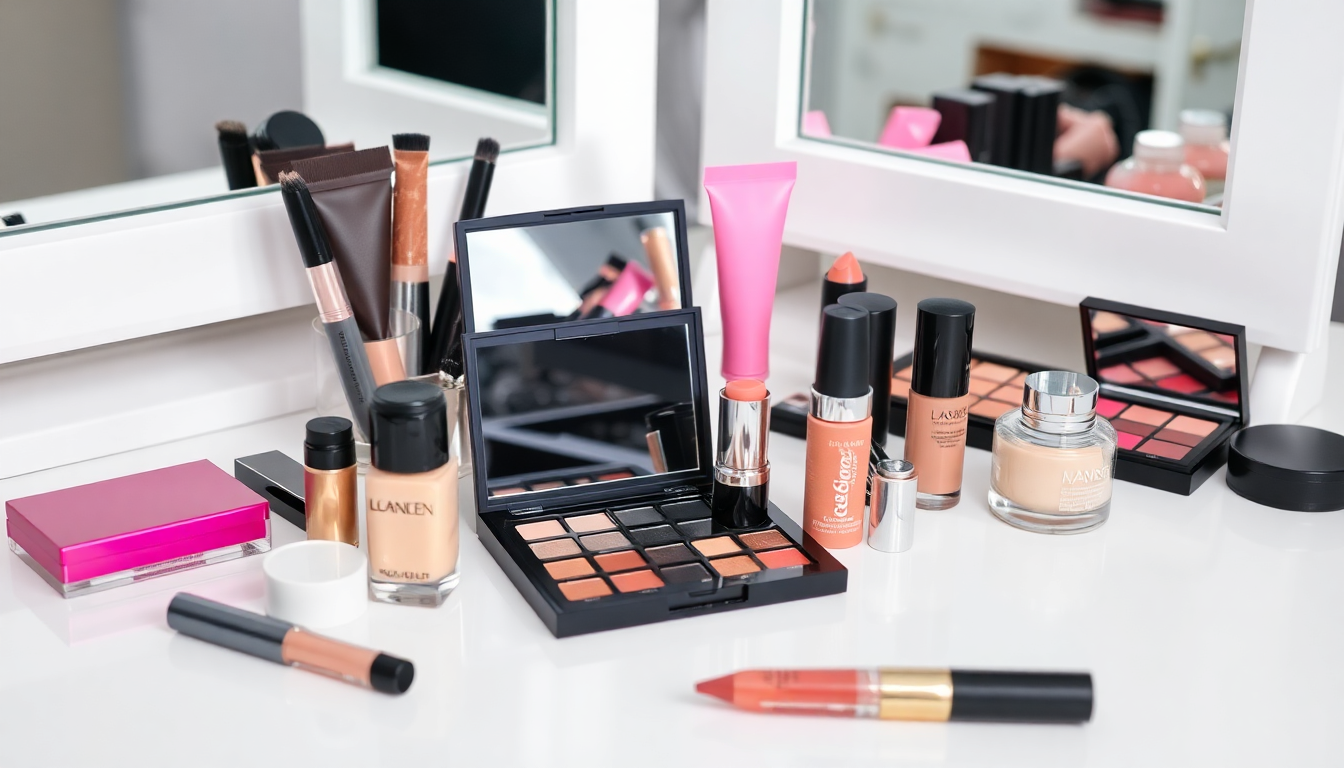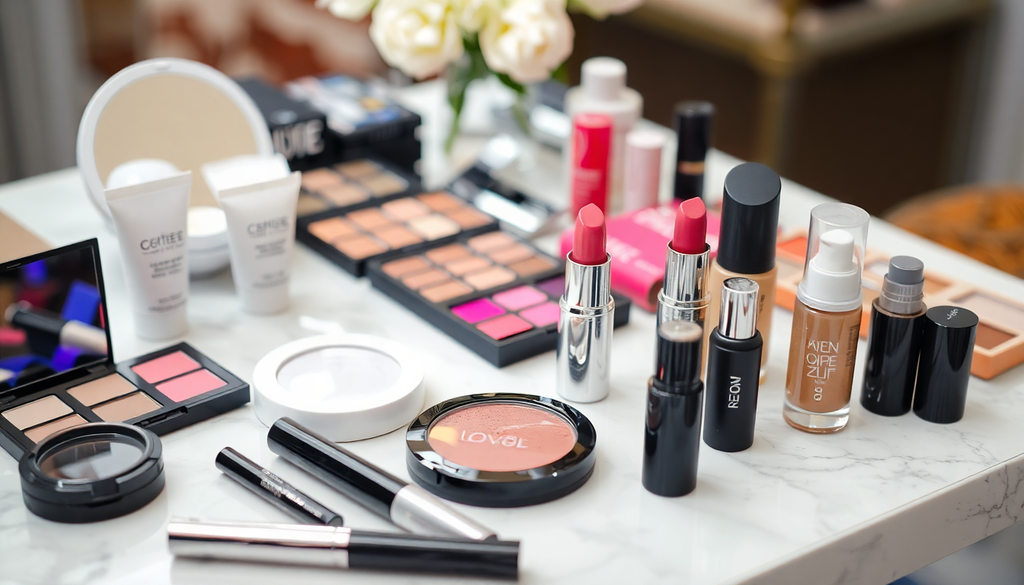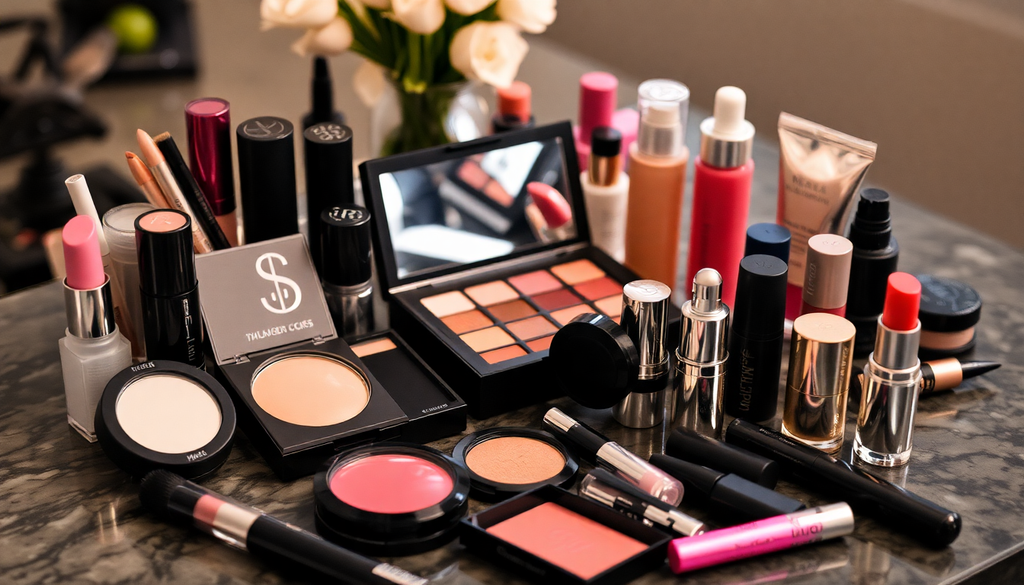
الخطوات الأساسية لإطلاق علامتك التجارية الخاصة لمستحضرات التجميل: التنقل عبر سياسات الاستيراد واستراتيجيات التسويق لتحقيق النجاح في عام 2025
مقدمة
مع استمرار ازدهار صناعة الجمال في عام 2025، يمثل إطلاق علامة تجارية خاصة لمستحضرات التجميل فرصة فريدة لرواد الأعمال الذين يتطلعون إلى إيجاد مكان لهم في هذا السوق الديناميكي. ومع ذلك، فإن الرحلة من الفكرة إلى الإطلاق الناجح تتطلب تخطيطًا دقيقًا وتنفيذًا محكمًا. ستوفر لك هذه الدليل الشامل الخطوات الأساسية لتجاوز سياسات الاستيراد وتنفيذ استراتيجيات تسويقية فعالة لضمان نجاح علامتك التجارية.
فهم سياسات الاستيراد
قبل أن تتمكن من بدء بيع منتجات المكياج الخاصة بك، من الضروري أن يكون لديك فهم قوي لسياسات الاستيراد التي تحكم مستحضرات التجميل. تختلف هذه اللوائح من بلد إلى آخر، مما يؤثر على كل شيء من تركيب المنتج إلى وضع العلامات. فيما يلي بعض الجوانب الرئيسية التي يجب مراعاتها:
- لوائح استيراد الأبحاث: لكل دولة مجموعة من اللوائح الخاصة باستيراد مستحضرات التجميل. على سبيل المثال، في الاتحاد الأوروبي، يجب أن تتوافق مستحضرات التجميل مع لائحة مستحضرات التجميل للاتحاد الأوروبي، والتي تشمل تقييمات السلامة وقيود المكونات. تعرّف على القوانين في السوق المستهدفة لتجنب التعقيدات القانونية.
-
الامتثال لمتطلبات الوسم: الوسم الدقيق ليس مجرد متطلب قانوني؛ بل هو أيضًا جانب أساسي لبناء الثقة مع عملائك. تأكد من أن ملصقات منتجك تتضمن ما يلي:
- قائمة المكونات بترتيب تنازلي حسب الوزن
- اسم المنتج والغرض
- تعليمات الاستخدام
- بيانات تحذيرية للمسببات المحتملة للحساسية
- بلد المنشأ
- الحصول على الشهادات اللازمة: اعتمادًا على السوق المستهدف، قد تكون بعض الشهادات مطلوبة لمنتجاتك. على سبيل المثال، في الولايات المتحدة، لا تتطلب FDA الموافقة المسبقة على مستحضرات التجميل، ولكن من المستحسن اختبار منتجاتك من حيث السلامة والفعالية. بالإضافة إلى ذلك، يمكن أن تعزز الشهادات مثل خالية من القسوة، نباتية، أو عضوية جاذبية علامتك التجارية.
إعداد متجر المكياج الخاص بك عبر الإنترنت
مع فهم واضح لسياسات الاستيراد، الخطوة التالية في رحلتك هي إنشاء متجرك الإلكتروني. إليك كيفية القيام بذلك بفعالية:
- اختر منصة التجارة الإلكترونية المناسبة: اختيار المنصة المناسبة أمر حاسم لنجاح عملك. تشمل الخيارات الشائعة Shopify و WooCommerce و BigCommerce. ضع في اعتبارك عوامل مثل سهولة الاستخدام، بوابات الدفع، وقابلية التوسع عند اتخاذ قرارك.
-
صمم موقعًا إلكترونيًا جذابًا: موقعك الإلكتروني هو وجه علامتك التجارية. يجب أن يكون جذابًا بصريًا وسهل التنقل. إليك بعض نصائح التصميم:
- استخدم صورًا عالية الجودة تعرض منتجاتك
- ادمج ألوان وخطوط علامتك التجارية لتحقيق الاتساق
- أنشئ تخطيطًا بديهيًا يوجه الزوار عبر عروضك
- تأكد من أن موقعك ملائم للهواتف المحمولة، حيث يتسوق العديد من المستهلكين عبر الأجهزة المحمولة
- تنفيذ خيارات دفع آمنة: من المرجح أن يقوم العملاء بعمليات الشراء إذا شعروا أن معلوماتهم المالية آمنة. قدم طرق دفع متنوعة، بما في ذلك بطاقات الائتمان، PayPal، والخيارات الأحدث مثل Apple Pay والعملات المشفرة، لتلبية التفضيلات المختلفة.
- تحسين السرعة والأداء: يمكن أن يؤدي موقع الويب الذي يستغرق وقتًا طويلاً في التحميل إلى ردع العملاء المحتملين. استخدم أدوات مثل Google PageSpeed Insights لتحليل أداء موقعك وإجراء التحسينات اللازمة.
استراتيجيات التسويق لعلامتك التجارية للمكياج
بمجرد أن يكون متجرك الإلكتروني جاهزًا ويعمل، حان الوقت للتركيز على تسويق علامتك التجارية بفعالية. فيما يلي بعض الاستراتيجيات التي يجب مراعاتها:
-
استخدم وسائل التواصل الاجتماعي: تُعد منصات التواصل الاجتماعي لا تقدر بثمن لعلامات التجميل. ضع في اعتبارك هذه التكتيكات:
- تفاعل مع جمهورك من خلال الاستطلاعات، جلسات الأسئلة والأجوبة، والهدايا
- تعاون مع المؤثرين أو مدوني الجمال الذين يتوافقون مع قيم علامتك التجارية
- استخدم Instagram و TikTok لشرح المنتجات وتحديات المكياج
- إنشاء محتوى جذاب: يمكن لتسويق المحتوى أن يساعد في ترسيخ علامتك التجارية كسلطة في صناعة الجمال. أنشئ منشورات مدونة، وفيديوهات، ورسوم بيانية تعليمية تُثقف جمهورك حول تقنيات تطبيق المكياج، والاتجاهات، وفوائد المنتجات.
-
استثمر في تحسين محركات البحث: تحسين محركات البحث ضروري لجذب الزيارات العضوية إلى موقعك الإلكتروني. ضع في اعتبارك هذه الاستراتيجيات:
- حدد واستخدم الكلمات المفتاحية ذات الصلة في جميع أنحاء موقعك الإلكتروني ومحتواك
- تحسين أوصاف المنتجات ومشاركات المدونة لمحركات البحث
- ابنِ روابط خلفية من خلال التدوين كضيف أو التعاون مع مواقع الجمال الأخرى
- استخدم التسويق عبر البريد الإلكتروني: بناء قائمة بريد إلكتروني يتيح لك التواصل المباشر مع عملائك. قدم حوافز مثل الخصومات أو الوصول الحصري إلى المنتجات الجديدة مقابل التسجيل في البريد الإلكتروني. استخدم النشرات الإخبارية لمشاركة التحديثات، العروض الترويجية، ونصائح الجمال.
بناء هوية العلامة التجارية
هويتك التجارية ضرورية للتميز في سوق مزدحم. إليك خطوات لإنشاء هوية تجارية قوية:
- حدد جمهورك المستهدف: فهم من هم عملاؤك المثاليون سيوجه عروض منتجاتك واستراتيجيات التسويق الخاصة بك. قم بإنشاء شخصيات العملاء لتوضيح خصائصهم الديموغرافية وتفضيلاتهم وسلوكيات التسوق لديهم.
- أنشئ اسم علامة تجارية وشعارًا لا يُنسى: يجب أن يعكس اسم علامتك التجارية قيمك ويتناغم مع جمهورك. استثمر في تصميم شعار احترافي لتعزيز التعرف على العلامة التجارية وإنشاء هوية بصرية.
- حافظ على الاتساق: الاتساق عبر جميع القنوات يبني الثقة والاعتراف. تأكد من أن رسائلك، والمرئيات، ونبرة صوتك تظل موحدة، سواء على موقعك الإلكتروني، أو وسائل التواصل الاجتماعي، أو التغليف.
- طور عرض البيع الفريد (USP): عبّر بوضوح عما يجعل علامتك التجارية فريدة. سواء كانت تركيبات مبتكرة، تغليف صديق للبيئة، أو تركيز على الشمولية، يجب أن يتم توصيل عرض البيع الفريد الخاص بك في جميع جهود التسويق.
اللوجستيات وإدارة سلسلة التوريد
إدارة اللوجستيات وسلسلة التوريد الفعالة ضرورية لتشغيل علامتك التجارية للمكياج بسلاسة. فيما يلي بعض الجوانب التي يجب مراعاتها:
- تحديد الموردين الموثوقين: قم بالبحث وإقامة علاقات مع الموردين والمصنعين ذوي السمعة الطيبة لمنتجات المكياج الخاصة بك. تأكد من أنهم يلتزمون بمعايير السلامة ويمكنهم توفير الجودة التي تتوقعها.
- فهم خيارات الشحن: استكشف خيارات الشحن المختلفة للعثور على أفضل توازن بين التكلفة وسرعة التسليم. فكر في تقديم شحن مجاني للطلبات التي تتجاوز مبلغًا معينًا لتشجيع عمليات الشراء الأكبر.
- تنفيذ أنظمة إدارة المخزون: لمنع نفاد المخزون أو حالات التخزين الزائد، استثمر في برامج إدارة المخزون التي تتعقب المبيعات ومستويات المخزون في الوقت الفعلي.
تفاعل العملاء والاحتفاظ بهم
جذب العملاء هو الخطوة الأولى فقط؛ الاحتفاظ بهم هو التحدي الحقيقي. إليك استراتيجيات لتعزيز تفاعل العملاء وولائهم:
- تقديم خدمة عملاء استثنائية: الرد على استفسارات العملاء بسرعة وحل المشكلات بكفاءة. يمكن لخدمة العملاء الممتازة أن تؤدي إلى تقييمات إيجابية وتكرار الأعمال.
- شجع المحتوى الذي ينشئه المستخدمون: حفز عملاءك على مشاركة تجاربهم مع منتجاتك على وسائل التواصل الاجتماعي. فكر في تنفيذ هاشتاغ ليستخدمه العملاء عند نشر إطلالات المكياج الخاصة بهم.
- تنفيذ برنامج ولاء: كافئ العملاء المتكررين ببرنامج ولاء يقدم خصومات، منتجات حصرية، أو وصول مبكر إلى العروض. يمكن أن يحفز هذا العملاء على العودة إلى علامتك التجارية.
خاتمة
إطلاق علامة تجارية خاصة لمستحضرات التجميل في عام 2025 هو مسعى مجزٍ ولكنه مليء بالتحديات. من خلال فهم سياسات الاستيراد، وإنشاء متجر إلكتروني سلس، وتنفيذ استراتيجيات تسويقية فعالة، يمكنك وضع علامتك التجارية في موقع النجاح في سوق تنافسية. تذكر أن القدرة على التكيف هي المفتاح؛ فصناعة الجمال تتطور باستمرار، والبقاء على اطلاع بالاتجاهات وتفضيلات المستهلكين سيساعدك على الازدهار. مع التفاني والتخطيط الاستراتيجي، يمكن لعلامتك التجارية الخاصة لمستحضرات التجميل أن تصبح اسمًا موثوقًا في مجتمع الجمال.




